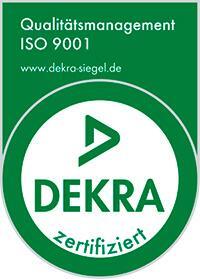Involuntary urination during physical exertion, coughing, or sneezing is referred to as stress urinary incontinence. The cause is a dysfunction of the pelvic floor muscles or nerve endings. In most cases, stress urinary incontinence is the result of a prostatectomy (prostate removal surgery) or a transurethral resection of the prostate. These surgical interventions are used to treat cancer or benign prostatic hyperplasia. You can go to Germany to get rid of urinary incontinence. Urologists from German hospitals perform minimally traumatic sling procedures. In severe cases, implantation of an artificial urinary sphincter may be indicated.
Content
- Treatment principles
- Surgical treatment
Stress urinary incontinence is most commonly treated with sling systems. In severe cases, an artificial urinary sphincter may be implanted.
You can undergo your treatment in one of the following hospitals: Urology Clinic Munich-Planegg, University Hospital Ulm, or University Hospital of Ludwig Maximilian University of Munich.
You are welcome to make your treatment appointment through the Booking Health service, and our specialists will take care of all organizational issues. They will recommend a clinic and a doctor, organize a quick appointment at the selected clinic, send an invitation for treatment and help you to apply for a visa, take care of your flights and transfers, prepare translations of your medical records, and help with all other organizational or medical issues.
Treatment principles
The treatment for male stress urinary incontinence can be conservative or surgical.
Conservative treatment options include Kegel exercises and biofeedback. These methods are especially effective during the rehabilitation period after a prostatectomy. However, they do not always solve the problem completely.
Surgical treatment options are as follows:
- injection of volume-forming substances into the urethra (collagen, silicone, adipose tissue, etc.);
- implantation of a transobturator sling;
- implantation of an artificial bladder sphincter.
For the treatment of male stress urinary incontinence in Germany, volume-forming injections are almost never used. They have only a temporary effect and often do not allow patients to achieve complete control over their urination. In addition, such injections can lead to urethral scarring.
Surgical treatment
Most men use sling techniques. Doctors place a loop that puts pressure on the urethra and helps the sphincter perform its obstructive function.
One of the most common sling techniques is the implantation of retrourinal advance® sling. This is used in the treatment of mild to moderate urinary incontinence. The first generation of mesh slings had an efficiency of about 50%. In 2010, the second generation of the device appeared. This turned out to be safer and more reliable. More than 70% of men retain complete control over their urination after 2 years of medical supervision.
Indications for the implantation are as follows:
- less than 4 pads per day or loss of less than 300 g of urine per day during a daily pad test;
- structurally (based on a cystoscopy) and functionally normal urinary sphincter;
- bladder capacity more than 150 ml;
- residual urine volume less than 100 ml;
- the absence of bladder surgery, cryotherapy, and radiation therapy in the past.
In any sling procedure, it is important to adjust the tension on the sling to prevent pinching of the urethra and to improve the long-term outcome of the operation. Tension can be adjusted both during and after surgery.
Intraoperative techniques. There are many criteria by which doctors determine the optimal degree of sling tension. For example, they tighten it in such a way that two fingers pass between the ligature and the aponeurosis, tighten the ligatures after inserting a rigid cystoscope, measure the posterior vesicourethral angle, and so on. There are many ways, but all of them are not very accurate, so sometimes it is impossible to find the optimal degree of tension.
Postoperative methods. These are more accurate, as doctors evaluate the results of the operation, and then can change the degree of tension on the sling. In Europe, the remeex sling system, which has been in use since 2003, is the most widely applied. It consists of a regulation mechanism, a manipulator and a disconnector. With a manipulator, a doctor increases or loosens the tension by turning the key, and the disconnector is used to remove the manipulator after reaching the required degree of tension in the sling.
There are other systems that are successfully used in Europe. Since 2006, the Argus sling system has been used. This system provides the possibility of adjusting the tensile force after surgery. According to some studies, its effectiveness reaches 90%.
Since 2009, the ATOMS system has been used to treat urinary incontinence after prostate removal. This is a sling with a hydraulic "cushion", which is filled through a catheter port during the operation. After the surgical intervention, the pressure inside the "cushion" can be changed. The efficiency of the system is 92%.
Artificial urinary sphincter. This is used for severe urinary incontinence. The technique has been used in medicine since 1972. The most widely used artificial sphincter is AMS, first produced in 1981 and subsequently improved.
You are welcome to use the Booking Health service to undergo your diagnostics and treatment of stress urinary incontinence in one of the Urology Centers in Germany. You can find the prices, compare the cost of treatment in different clinics, and make your treatment appointment at the best price. The Booking Health specialists will help you to choose the most suitable clinics in Germany and organize your trip.
Authors:
The article was edited by medical experts, board-certified doctors Dr. Nadezhda Ivanisova and Dr. Sergey Pashchenko. For the treatment of the conditions referred to in the article, you must consult a doctor; the information in the article is not intended for self-medication!
Sources:
MedlinePlus
Verywell Health
Google Scholar
















